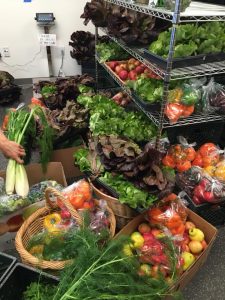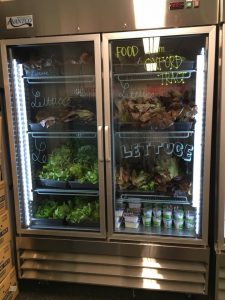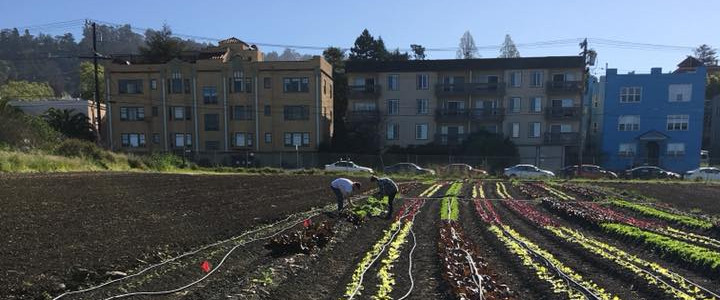Written by Brittani Gallagher
Spring 2018
This semester I have been helping manage a research plot at the Oxford Tract with a group of undergraduate and graduate students, as well as UC Berkeley faculty. The research plot is being used to examine the effects of different urban farm soil management techniques, specifically no-till farming versus till farming and the utilization of cover crops versus no cover crops on soil characteristics and crop yield. The goal of the study is to produce tangible research results in a form that is accessible and useful to urban farmers, especially those residing in the East Bay.
This is a unique project in that the researchers are aiming to do more than just collect data and publish a paper. In addition to research, the plot also serves to fight food insecurity and educate aspiring farmers. All of the food that is produced on the plot (which is a massive amount) is donated to the UC Berkeley Food Pantry which helps students in need obtain fresh, nutritious food. The project also provides a space for individuals to learn farm management techniques. Through various partnerships, including MESA, Plant Justice, and SOGA, this project has provided farmer training to a wide range of people.
My Path to the Oxford Tract
I first became interested in the Food Systems minor after taking my first soil science class where I learned how disruptive modern-day agricultural practices are to soil health and the biological communities that inhabit them. From there, I became enthralled with sustainable agriculture and tried to enroll in as many agriculture related class as I could because I wanted to really get a better understanding of what I could do to help improve the state of our agricultural production practices. As I learned more and more, I realized that I was primarily interested in agriculture’s impact on soil health and the negative impact that industrial agriculture practices, such as tillage have on the soil’s ability to sequester carbon.
When I found out about this project, I was thrilled to be able to join as it aligned really well with my interests and I was excited to gain experience working on a research project in a field that I feel passionately about. I was also excited to gain hands on experience in the field because although my classes have equipped me with a strong foundation in agricultural theories and sustainable farming practices, I previously had close to no experience actually working on a farm. I was also excited to be able to spend time outdoors and outside of the regular classroom.

Highlights and Challenges
Working in the field has been an immensely rewarding and eye-opening experience where I have been able to learn valuable farming skills, while also experiencing the reality of what farming entails and the multitude of issues that urban farmers face.
By working on this project, I found that I was “killing many birds with one stone” because I was spending time outdoors, being physically active, and also engaging in a community project that I feel is making a positive impact. One of the most rewarding aspects of working on this project is that I was I able to witness so many crops grow from tiny seeds into beautiful, nutrient-rich vegetables. I also learned incredibly valuable farming skills that I will most definitely use throughout my life because I definitely want to continue volunteering on urban farms.
I also feel that I’m walking away from this project with a true respect for farmers and a better understanding of the sacrifices that they make to ensure that our grocery store shelves are stocked with plentiful amounts of produce. While I’ve always known that farming requires intense labor, I never really registered just hard the work actually is and how much there is to do to run a successful farm operation. However, after spending so many hours working in the field, I find myself looking at my food with a whole new level of gratitude.
There have definitely been instances where the work was very strenuous and I found myself tired and sore after a long work day, but in the end I knew that all the hard work was worth it. There were also days that were tough because we found ourselves working in the pouring rail, or even when it was hailing because there were tasks that urgently needed to get done. While some moments were challenging, these experiences contributed to me having the most realistic experience of what it is like to be a farmer.

